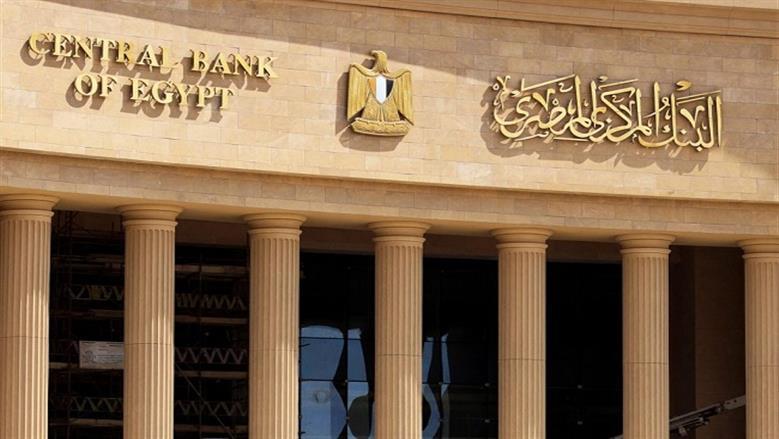Dr. Ashraf Ghareeb, an economic expert and Deputy Head of the Arab Union for Social Development at the League of Arab States for Economic Development, stated that the Central Bank’s decision to reduce interest rates by 2 percent was anticipated. This move follows the annual inflation rate decline to 13.1% in July 2025, down from 14.4% the previous month. Additionally, expectations of a similar cut by the U.S. Federal Reserve in its upcoming meeting supported the rationale behind the decision, which reflects confidence in Egypt’s economic performance.
In a statement, Ghareeb explained that lowering borrowing costs encourages manufacturers and investors to expand existing operations and launch new ventures, particularly in productive and real estate sectors. He emphasized that the rate adjustment signals stability in Egypt’s monetary and fiscal policies, enhancing the country’s appeal to domestic and foreign investors. This shift is expected to benefit citizens through job creation, reduced personal financing expenses, increased local production, improved market supply, and a gradual decline in consumer prices and inflation.
The positive ripple effects of this monetary easing include higher economic growth driven by increased public and private investment, inflows of foreign capital, and expansion across industrial, production, and commercial activities. The reduction particularly impacts food goods financing, leading to softer price pressures on households. With inflation projected to continue easing in the coming months, the broader economic outlook remains favorable.
Ghareeb also highlighted improvements in key economic indicators: worker remittances reached $33.6 billion in the last fiscal year, tourism revenues grew, exports expanded, and both direct and indirect foreign investments increased. These factors collectively boosted foreign exchange reserves beyond $49 billion and contributed to a gradual depreciation of the exchange rate, providing the necessary confidence for the central bank’s policy shift.
— news from \publisher>
— News Original —
خبير اقتصادي: خفض سعر الفائدة يحفز الاستثمار ويرفع معدلات النمو
قال الدكتور أشرف غراب، الخبير الاقتصادي، نائب رئيس الاتحاد العربي للتنمية الاجتماعية بجامعة الدول العربية لشؤون التنمية الاقتصادية، إنّ قرار لجنة السياسة النقدية بالبنك المركزي بتخفيض سعر الفائدة 2%، كان متوقعًا، خاصة بعد تراجع معدل التضخم السنوي لإجمالي الجمهورية إلى 13.1% في يوليو 2025 مقابل 14.4% في يونيو الماضي، إضافة إلى التوقع باتجاه الاحتياطي الفيدرالي الأمريكي في اجتماعه المقبل لخفض سعر الفائدة، موضحا أنها خطوة إيجابية تعكس ثقة الدولة في أداء الاقتصاد المصري. n nوأضاف في بيان، أن قرار خفض سعر الفائدة يقلل من تكلفة التمويل، ما يشجع المصنعين والمستثمرين على التوسع في استثماراتهم القائمة وفتح استثمارات جديدة، خاصة في القطاعات الإنتاجية والعقارية وغيرها، موضحًا أن خفض الفائدة يحمل دلالة على استقرار السياسة النقدية والمالية في مصر، ما يعزز من صورة الاقتصاد المحلي بجذب المستثمرين، إضافة إلى أن القرار يعود على المواطن بخلق فرص عمل جديدة له وخفض تكلفة التمويل الشخصي وزيادة الإنتاج المحلي وتوافر السلع بالأسواق وتراجع أسعار السلع وتراجع معدل التضخم تدريجيًا. n nآثار إيجابية لخفض الفائدة n nوأشار إلى أنه من آثار قرار خفض الفائدة الإيجابية، ارتفاع معدلات النمو، وذلك عن طريق زيادة حجم الاستثمارات الخاصة والعامة، إضافة لتدفق الاستثمارات الأجنبية وتوسع الأنشطة الإنتاجية والصناعية والتجارية، مضيفا أن خفض الفائدة يخفض من تكلفة التمويل ويظهر أثره أكثر على قطاع السلع الغذائية ما يعمل على تراجع أسعارها تدريجيا بالأسواق وتخفيف العبء عن كاهل المواطن، خاصة مع التوقعات باستدامة تراجع معدل التضخم خلال الشهور المقبلة . n nزيادة الاحتياطي النقدي n nوتابع أن المؤشرات الاقتصادية كافة تحسنت بشكل كبير، موضحًا أن إيرادات تحويلات المصريين بالخارج شهدت قفزة كبيرة وحققت 33.6 مليار دولار خلال العام المالي الماضي، وزادت الإيرادات السياحية، وزاد حجم الصادرات، وزاد حجم الاستثمارات الأجنبية المباشرة وغير المباشرة التي تدخل مصر، وهذا ساهم في زيادة الاحتياطي النقدي الأجنبي لأكثر من 49 مليار دولار، وتراجع سعر الصرف تدريجيًا، موضحا أن كل هذه العوامل دفعت لجنة السياسة النقدية لخفض سعر الفائدة.
